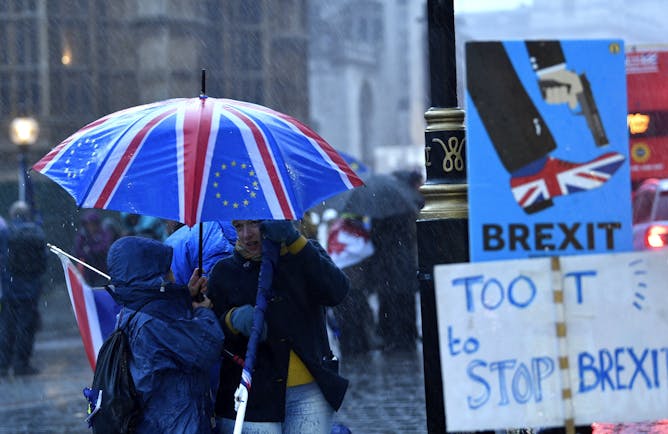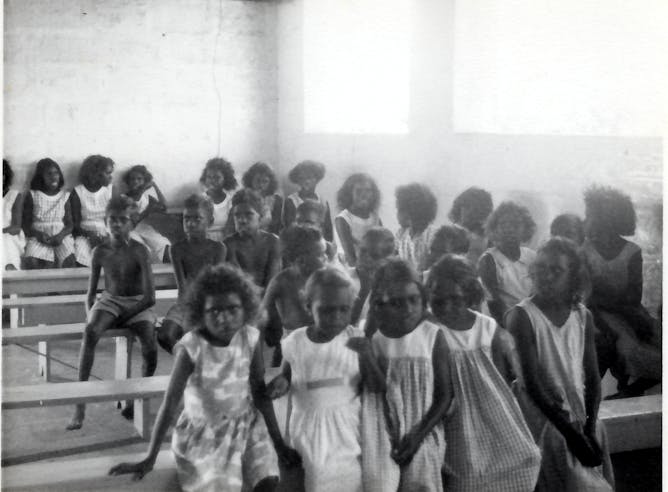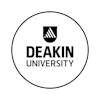|
|
|
Editor's note
|
|
We know UK Prime Minister Theresa May’s Brexit deal was rejected in parliament this week. We’ve all heard the numbers – 432 to 202. We’ve been told this is the most humiliating parliamentary defeat of a British government in recent history. We’ve read about the soft and hard Brexiters, and those who support a deal while others don’t. But if we’re honest with ourselves, do we really understand what is actually happening? Luckily Giovanni Di Lieto has tied it all together – from the referendum to the defeat, he explains the deal and all the buzz words in between. And he even ventures into the so-called “backstop” with the Ireland border, which he says
is the thorniest issue in the debate.
Preliminary hearings of the aged care royal commission start today in Adelaide, potentially unearthing thousands of new cases of abuse, neglect and substandard care in our nursing homes. But as Professor Joseph Ibrahim reports, any changes that come out of the royal commission will likely come too late for today’s elderly residents. Instead, it’s people now in their 50s and 60s, and their kids, who will benefit most.
And, when Australia was colonised, people spoke at least 250 languages. Today, only 10% of Indigenous Australians speak an Indigenous language at home. As 2019 is the International Year of Indigenous Language, Laura Rademaker looks at how colonisers deliberately dismantled Australia’s incredible linguistic diversity.
|
Sasha Petrova
Deputy Editor, Politics & Society
|

|
|
Top story
|

Theresa May’s Brexit deal was voted down – but what was in it?
Neil Hall/AAP
Giovanni Di Lieto, Monash University
If you're confused about the deadlock in the UK over its withdrawal from the European Union, or Brexit, this might help clear some things up.
|

Healthy people now in their 50s and 60s will be the first generations to benefit from reform. For people already in care, changes will come too late.
from www.shutterstock.com
Joseph Ibrahim, Monash University
By the time the aged care royal commission's recommendations lead to improvements in our nursing homes, four cohorts of residents will have died. Here's why.
|

Angurugu mission school children in the 1940s on Groote Eylandt, NT. Missions helped both erode and preserve Indigenous languages.
Groote Eylandt Linguistics
Laura Rademaker, Australian National University
Australia was one of the most linguistically diverse places in the world but today, few people speak an Australian language.
|
Education
|
-
Margaret Kristin Merga, Edith Cowan University
If schools and policy-makers want to boost children's literacy, they should invest in teacher librarians.
-
Lynn Sheridan, University of Wollongong; Nan Bahr, Southern Cross University
Changes to the literacy and numeracy standards for new teachers in Victoria have raised questions about what makes a 'good' teacher.
|
|
Science + Technology
|
-
Ben Egliston, University of Sydney
You might be under the impression that video games are more accessible than they’ve ever been. But serious efforts to make gaming available for people living with disability remain rare.
-
Joshua Chou, University of Technology Sydney
Can China build a lunar base? Absolutely. Can human beings survive on the Moon and other planets for the long term? The answer to that is less clear.
|
|
Business + Economy
|
-
Richard Holden, UNSW
Counterintuitively, vague incentives are often stronger than clear ones.
-
David C. Ribar, University of Melbourne; Nicolás Salamanca, University of Melbourne
Two new measures of financial well-being contain surprises and show many people believe they are doing better than you might think.
-
Sabrina Chakori, The University of Queensland; Ammar Abdul Aziz, The University of Queensland
Zero-packaging stores provide a systemic solution to a globalised food industry dependent on plastic packaging.
|
|
Health + Medicine
|
-
Alessandro R Demaio, University of Copenhagen; Jessica Fanzo, Johns Hopkins University; Mario Herrero, CSIRO
We need to change how we produce, ship, eat and waste food to improve our health and that of the planet.
|
|
Arts + Culture
|
-
Kelly D. Wiltshire, Flinders University
The Coorong's Indigenous heritage is threatened by off-road vehicles and climate change.
|
|
Politics + Society
|
-
Alexandra Whittaker, University of Adelaide; Rochelle Morton, University of Adelaide
Our research compared penalties for animal cruelty issued before and after the law change in SA. We found the penalties did in fact increase, but reports of abuse haven't decreased.
|
|
Environment + Energy
|
-
Julie Arblaster, Monash University; Gerald A Meehl, National Center for Atmospheric Research ; Guomin Wang, Australian Bureau of Meteorology
Antarctic sea ice cover fell to an all-time low recently and hasn't yet recovered. Why? The initial answers could lie in an unlikely place – the tropics.
|
|
Cities
|
-
Rob Roggema, Hanze University of Applied Sciences, Groningen
Cities around the world are redeveloping their waterfronts to be accessible and resilient to the effects of climate change. Here's where Sydney's Darling Harbour went wrong and what we can do better.
|
|
| |
Featured jobs
|

|
RMIT University — Melbourne, Victoria
|

|
University of Melbourne — Parkville, Victoria
|

|
Griffith University — Mount Gravatt, Queensland
|

|
University of Western Australia — Perth, Western Australia
|
|
|
|
Featured events
|

|
Parkes Pl W, Canberra, Australian Capital Territory, 2600, Australia — National Library of Australia
|

|
UNSW Sydney, Kensington, New South Wales, 2052, Australia — UNSW
|

|
727 Collins Street, Melbourne, Victoria, 3008, Australia — Deakin University
|

|
RMIT University, 445 Swanston Street, Melbourne, Victoria, 3000, Australia — RMIT University
|
|
|
|
| |
| |
| |
| |
| |
|
|
|
|
|
|
|